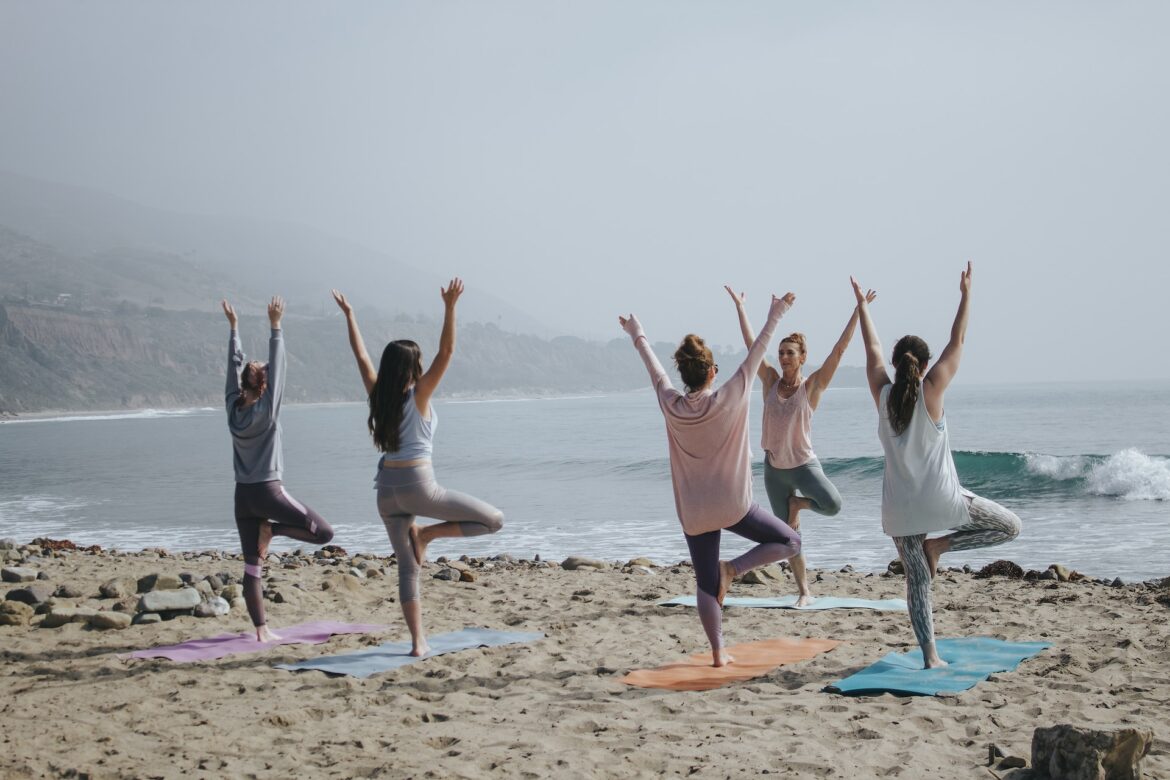Since she was a teenager, Raihane Hassaine has harboured a keen interest in health and fitness. She went on to study nutrition at university, where she developed her passion, later becoming a nutrition and wellness specialist. This article will look at the global rise in wellness tourism and how wellness retreats enable guests to improve their mental and physical health and wellbeing.
Just a few short years ago, the general perception of a ‘wellness retreat’ consisted of little more than a hotel with a spa and well-appointed gym. However, in recent years the definition has become much broader, with an eclectic range of restorative breaks available today and the global hospitality scene quietly catering for weary and burnt-out holidaymakers who yearn for something more than just a sleepy weekend steaming in the sauna.
From silent walking holidays to forest bathing and wild swimming, there are retreats catering for wellness tourists of all tastes and fitness levels. Essentially a form of self-care, wellness travel centres around guests intentionally disconnecting from life’s stressors to recharge their batteries and improve their physical and mental health, enabling them to re-enter daily life feeling refreshed and rejuvenated.
Wellness tourism can mean very different things to different travellers, with some signing up for hot springs and spa resorts and others preferring to camp, hike and reconnect with nature. Yoga and meditation retreats are incredibly popular today. Alternatively, wellness vacationers can simply create a DIY itinerary, adding healthy activities to a pre-planned family or business trip.
Some wellness travellers may simply crave a short break in a local hotel or Airbnb, enabling them to gain a few days of rest and relaxation away from their usual environment. Others may prefer immersion-based wellness travel, such as intensive yoga training, a pilgrimage or visiting a humanistic integrative education centre on their path to self-inquiry.
Wellness tourism is characterised by a focus on wellbeing. Beyond presenting an opportunity to re-establish healthy habits like eating well, exercising daily and sleeping better, wellness travel may also offer other potential mental and physiological health benefits.
Lisette Cifaldi is director of behavioural health at Hilton Head Health, a wellness and weight loss resort on Hilton Head Island, South Carolina. As she explains, wellness getaways are a prime opportunity for a mental, physical and emotional rest. After retreating to a wellbeing-supportive environment, participating in activities that align with their interests and budget, wellness tourists can return home happier, less stressed and more motivated to eliminate unhealthy behaviours, improving their brain and heart health over time.
Most people return home from vacation feeling happier and significantly less stressed than before they left. Research suggests that this seemingly temporary improvement in mood could have long-term mental health benefits, provided the individual keeps up their travel habit. In a study involving 1,500 women, participants who vacationed twice a year proved to be less likely to suffer chronic stress or depression than women who holidayed less frequently.
Regular time off makes people happy. In addition to offering a change of scenery, travel sparks powerful brain activity that has a positive impact on mood. In a 2020 study published in Nature, people with more variability in their daily environment often proved to be happier than those with more rigid routines. Analysing brain scans of study participants, the researchers found that those who switched locations more often also demonstrated greater hippocampal-striatal brain circuit activity. Other studies indicate that activities that stimulate the hippocampus encourage the release of the feel-good brain chemical dopamine.
There is a growing body of evidence to suggest that taking regular trips can be an effective means of managing long-term stress, giving the body and mind a break from everyday pressures and presenting an opportunity to indulge in relaxing activities and experiences, such as meditation, yoga, massage therapy and nature therapy. Such wellness-focused activities help to lower stress levels, with an online survey from Expedia suggesting that 88% of vacationers feel more relaxed by the second day of their holiday.
The stress-lowering effects of travel could also offer good news for heart health, with a study published by Psychology & Health indicating that people who take more vacations showed less symptoms of metabolic syndrome – a group of medical conditions that occur in tandem, increasing a person’s risk of type 2 diabetes, stroke and heart disease.
Often situated in natural havens, such as near mountains, greenery, water or forests, wellness retreats present ample opportunity to spend time outdoors enjoying the fresh air. Spending time in nature has the potential to reduce blood pressure, heart rate, anxiety and fatigue, enabling wellness tourists to reap a plethora of benefits presented by Mother Nature.
Wellness tourism also offers an additional mood-boosting benefit beyond stunning vistas and pollution-free air, with many retreats located in regions with no cell phone service or incorporating phone-free areas. With social media addiction linked to many mental and physical health issues, taking a break offers respite and presents the opportunity to fully disconnect, a luxury few can afford in their busy daily lives.




